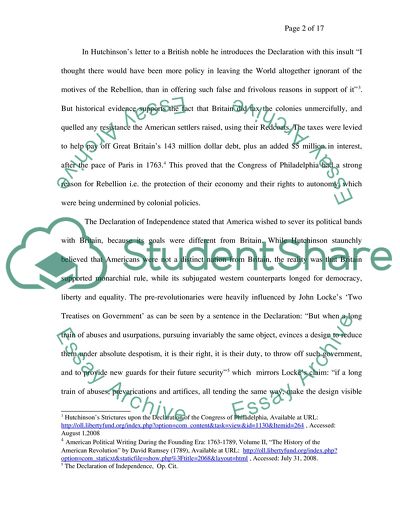Cite this document
(Hutchinsons Strictures upon the Declaration of Congress Research Paper, n.d.)
Hutchinsons Strictures upon the Declaration of Congress Research Paper. Retrieved from https://studentshare.org/politics/1715373-carefully-weight-the-grievances-listed-in-the-declaration-of-independence-with-hutchinsons-strictures-upon-the-declaration-of-the-cngress-of-philadelphia-who
Hutchinsons Strictures upon the Declaration of Congress Research Paper. Retrieved from https://studentshare.org/politics/1715373-carefully-weight-the-grievances-listed-in-the-declaration-of-independence-with-hutchinsons-strictures-upon-the-declaration-of-the-cngress-of-philadelphia-who
(Hutchinsons Strictures Upon the Declaration of Congress Research Paper)
Hutchinsons Strictures Upon the Declaration of Congress Research Paper. https://studentshare.org/politics/1715373-carefully-weight-the-grievances-listed-in-the-declaration-of-independence-with-hutchinsons-strictures-upon-the-declaration-of-the-cngress-of-philadelphia-who.
Hutchinsons Strictures Upon the Declaration of Congress Research Paper. https://studentshare.org/politics/1715373-carefully-weight-the-grievances-listed-in-the-declaration-of-independence-with-hutchinsons-strictures-upon-the-declaration-of-the-cngress-of-philadelphia-who.
“Hutchinsons Strictures Upon the Declaration of Congress Research Paper”, n.d. https://studentshare.org/politics/1715373-carefully-weight-the-grievances-listed-in-the-declaration-of-independence-with-hutchinsons-strictures-upon-the-declaration-of-the-cngress-of-philadelphia-who.


